Important 🧵on our new peer-reviewed paper:
The pandemic is as bad as it ever was for babies - in year to Aug 2023, 6,300 babies under 1 were admitted to hospital wholly or partly BECAUSE of Covid.
They are ONLY age group where admissions have NOT gone down over time 1/17
The pandemic is as bad as it ever was for babies - in year to Aug 2023, 6,300 babies under 1 were admitted to hospital wholly or partly BECAUSE of Covid.
They are ONLY age group where admissions have NOT gone down over time 1/17

Our study, led by Prof @katebrown220, looked at all hospitalisations in England in children with a Covid diagnosis or positive test from Aug 2020-Aug 2023.
We then *excluded* all admissions where a Covid diagnosis was incidental (ie not why they were in hospital)
2/17
We then *excluded* all admissions where a Covid diagnosis was incidental (ie not why they were in hospital)
2/17

Infants (babies under 1) are generally at higher risk from respiratory infections, plus they are the age group that, if infected, are overwhelmingly meeting the virus for the first time.
They are not vaccinated and have not had it before. 3/17
They are not vaccinated and have not had it before. 3/17
Over the whole period, Covid admissions in infants accounted for 43% of ALL admissions in children under 18 (19.7K/45.9K). 4/17 
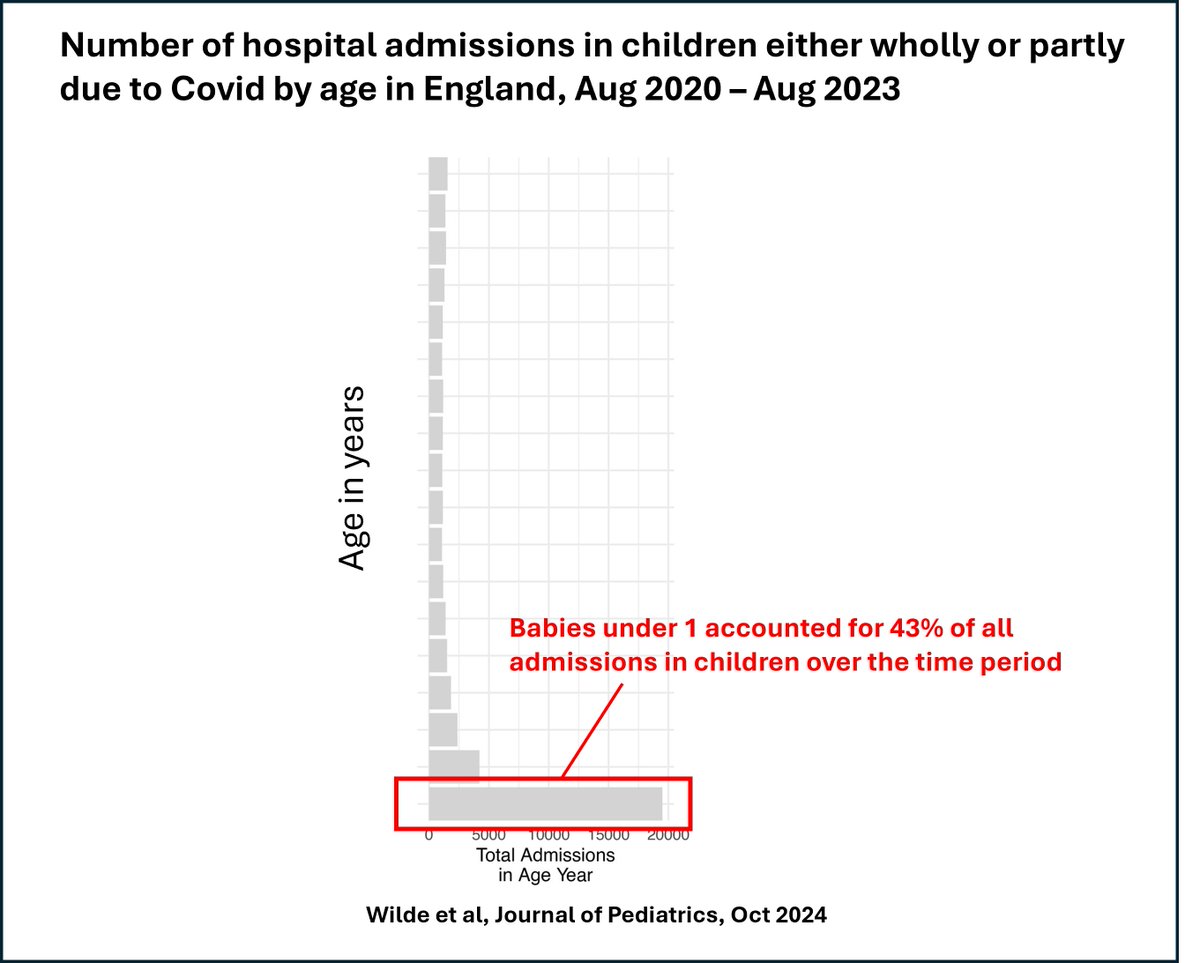
As children gained some immunity from infection or were vaxxed (mostly teens), their risk of needing hospital fell.
But this doesn't help infants in their first encounter with the virus. In the 12 months Aug 2022-23, infants were *64% of all covid child admissions*. 5/17
But this doesn't help infants in their first encounter with the virus. In the 12 months Aug 2022-23, infants were *64% of all covid child admissions*. 5/17
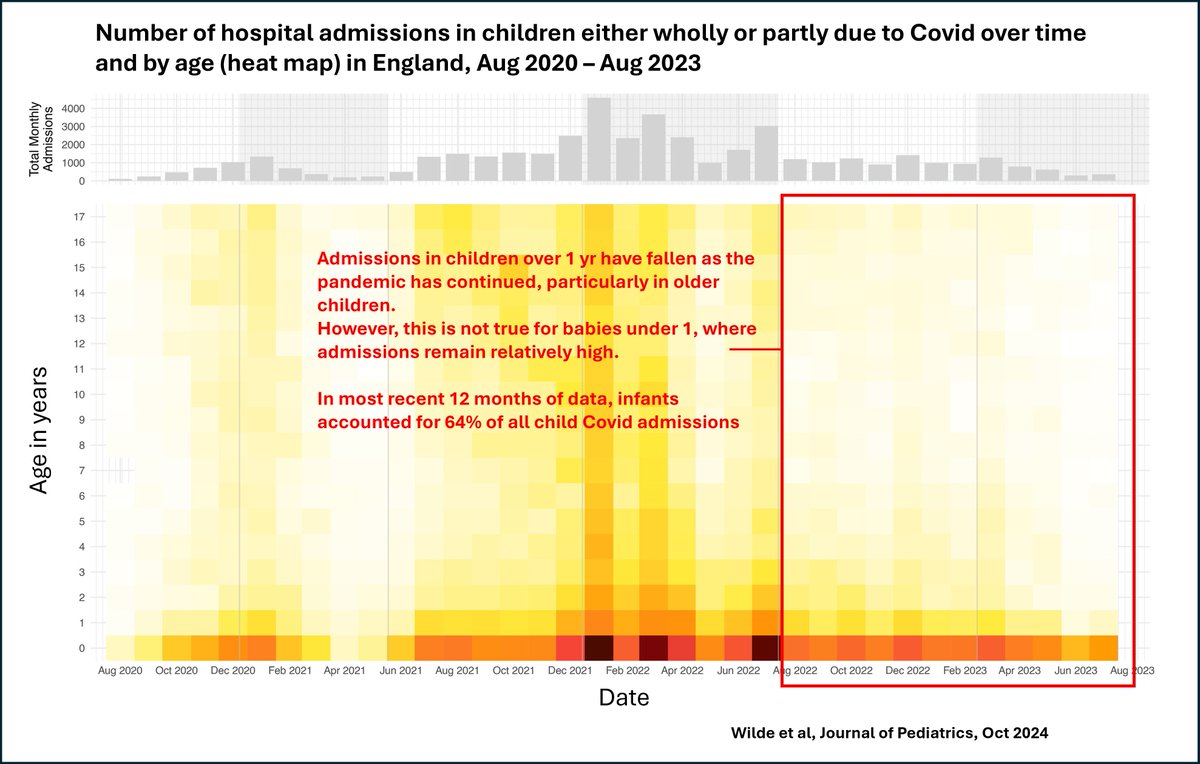
We also checked for evidence of underlying health conditions considered high risk by JCVI.
We found that by the most recent 12 months, 52% of Covid admissions in children over 1 had an underlying condition. But only 10% of infants did. 6/17
We found that by the most recent 12 months, 52% of Covid admissions in children over 1 had an underlying condition. But only 10% of infants did. 6/17
Most infants were in hospital for only a short time - about 2 days, but e.g. in last 12 months about 5% needed intensive care and 8 babies died.
We also found that children of ethnic minority background or in deprived areas were more at risk of Covid admission to hospital. 7/17
We also found that children of ethnic minority background or in deprived areas were more at risk of Covid admission to hospital. 7/17

So what are the implications? There is a safe and effective covid vaccine for 6 month-4 yr olds. It's part of routine childhood immunisation in some countries like US and Ireland.
It's approved in UK, but JCVI has not recommended its use. 8/17
It's approved in UK, but JCVI has not recommended its use. 8/17
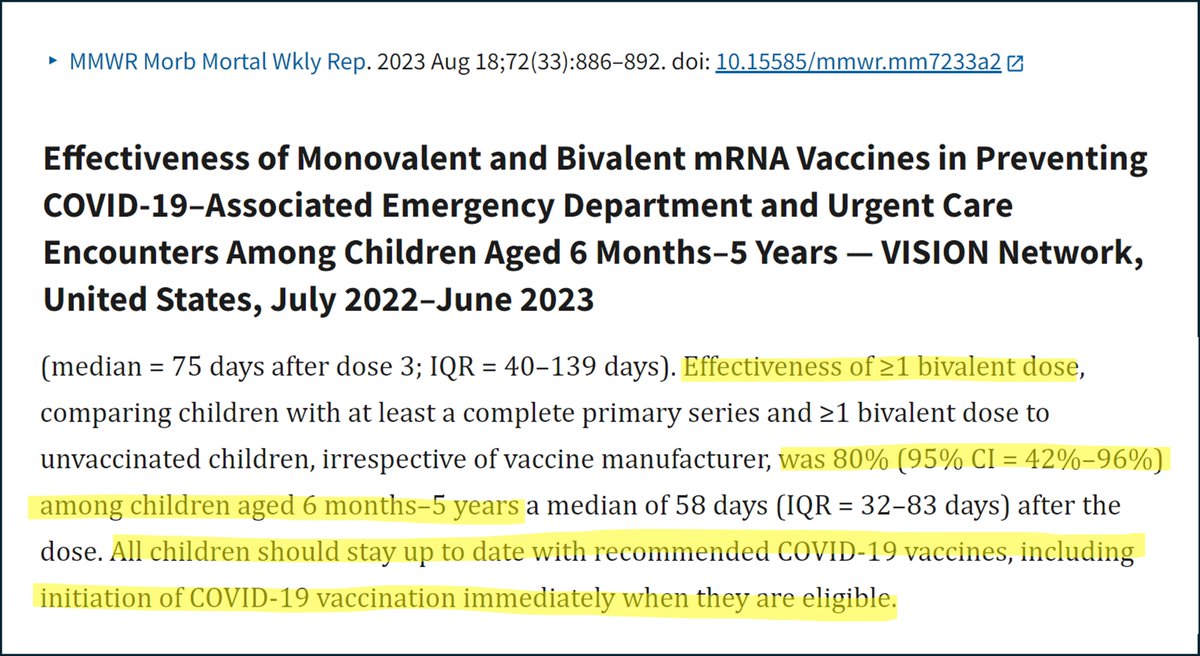
However, while personally I am in favour including covid vax in childhood programme, it's not quite that simple.
Firstly, newborn babies are by far most vulnerable and there is no vax before 6 months old. 9/17
Firstly, newborn babies are by far most vulnerable and there is no vax before 6 months old. 9/17
US analysis has shown that Covid hospitalisations in babies under 6 months old are HIGHER than ANY other age group apart from over 75s! Similar to adults aged 65-74!
Almost 1 in 5 babies needed intensive care! 10/17
Almost 1 in 5 babies needed intensive care! 10/17
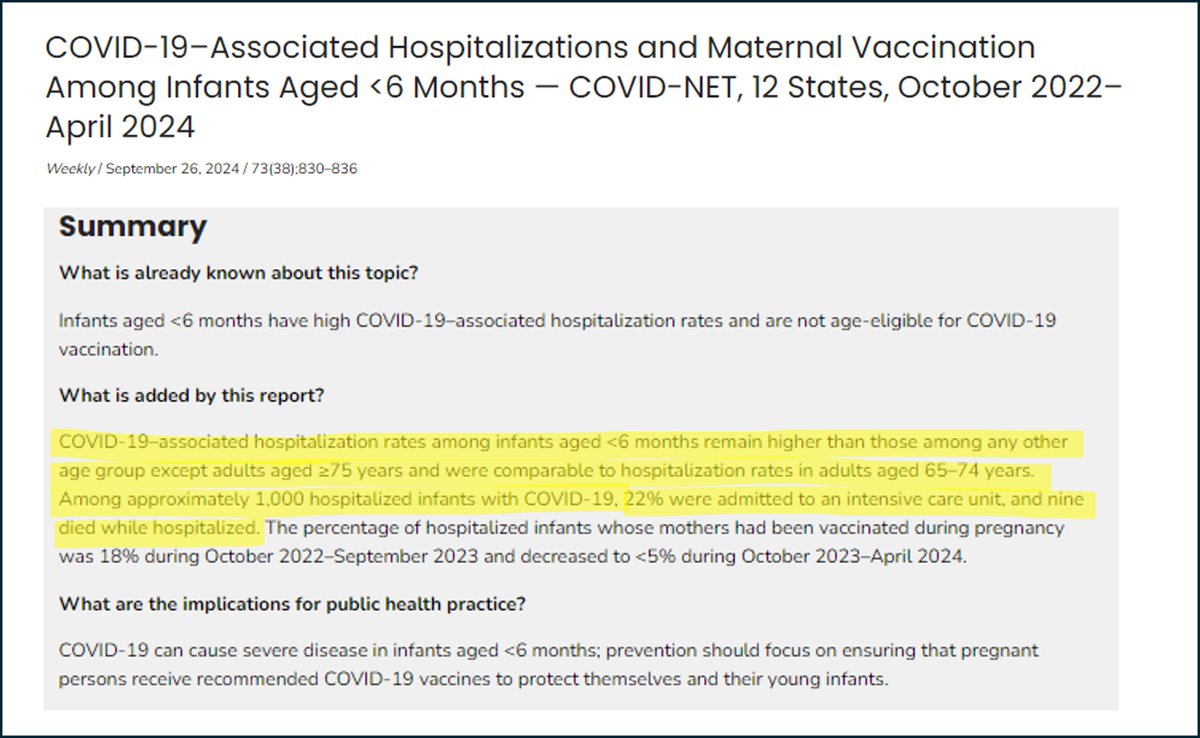
Most effective thing to protect newborns is for their mothers to be vaxxed during pregnancy (ideally in 3rd trimester).
It's not perfect but far better than nothing & IS OFFERED in UK.
Read Vicki Male's doc on all vax & pregnancy questions! 11/17
drive.google.com/file/d/1_wHIYX…
It's not perfect but far better than nothing & IS OFFERED in UK.
Read Vicki Male's doc on all vax & pregnancy questions! 11/17
drive.google.com/file/d/1_wHIYX…
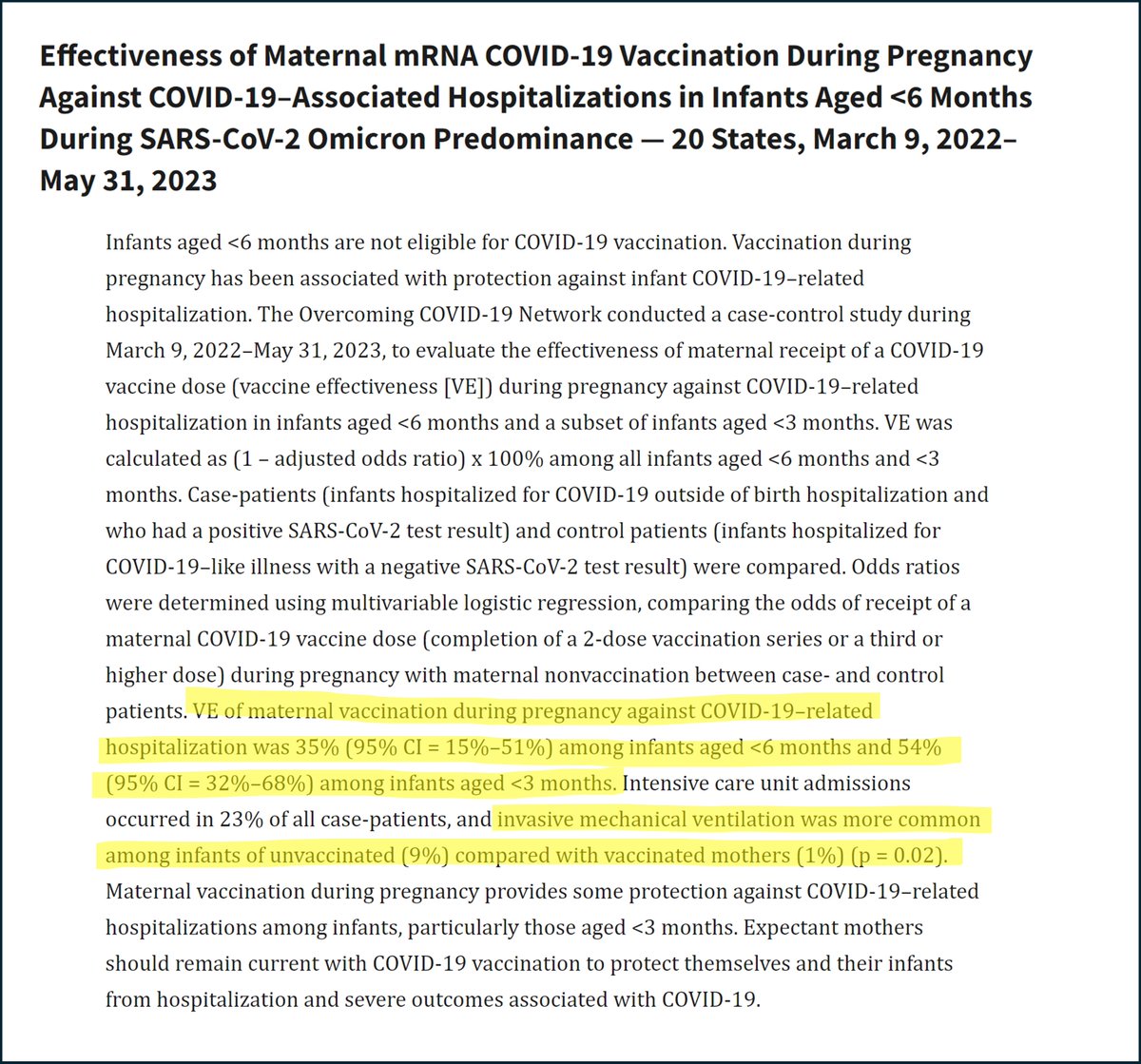
In fact, pregnant women can protect their newborns against all sorts of nasty respiratory viruses by being vaccinated in pregnancy.
As well as Covid, there's flu, whooping cough, and - now - RSV! 12/17



As well as Covid, there's flu, whooping cough, and - now - RSV! 12/17
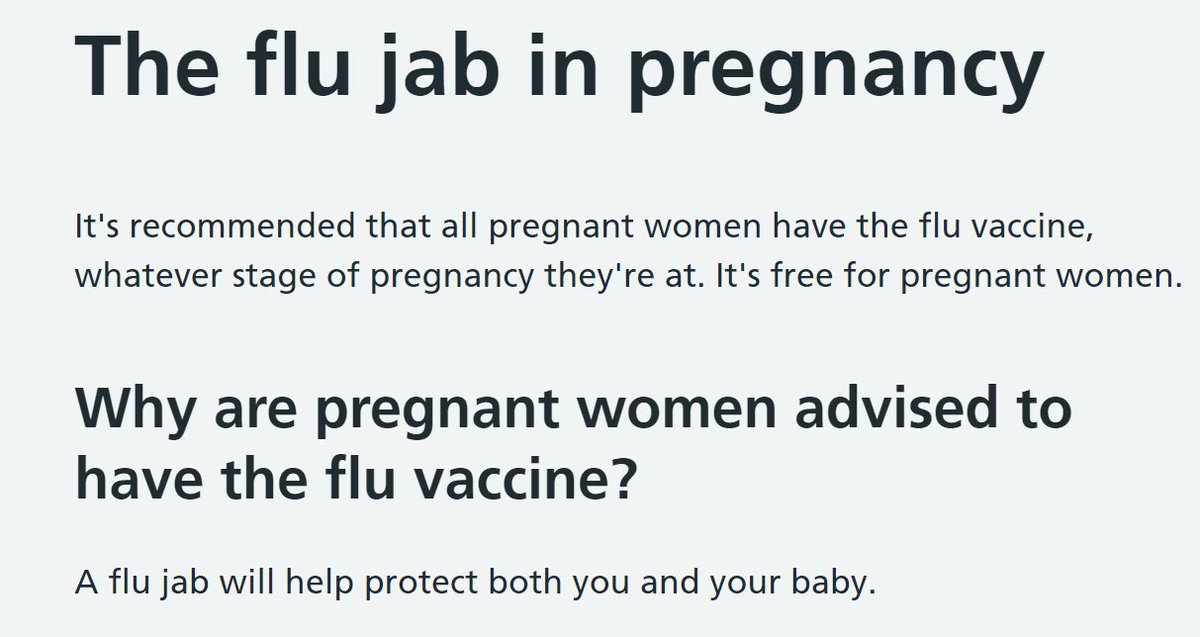
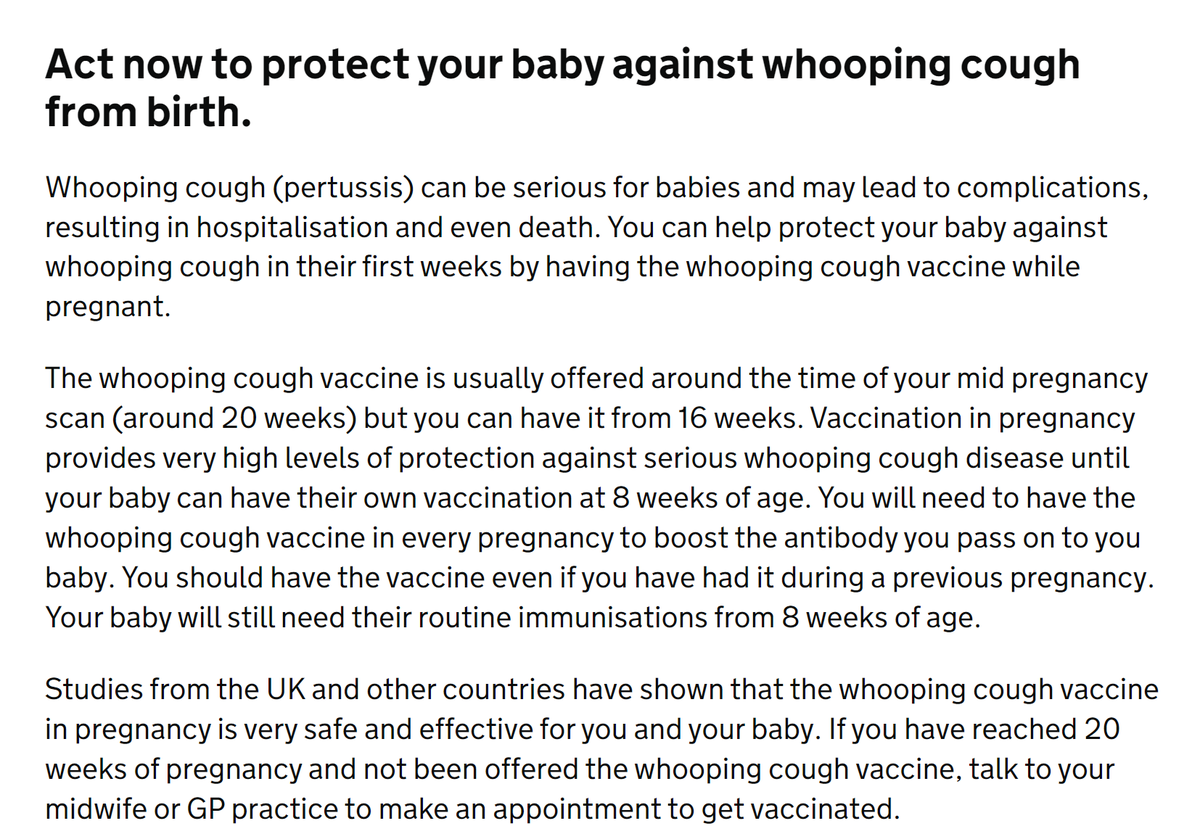
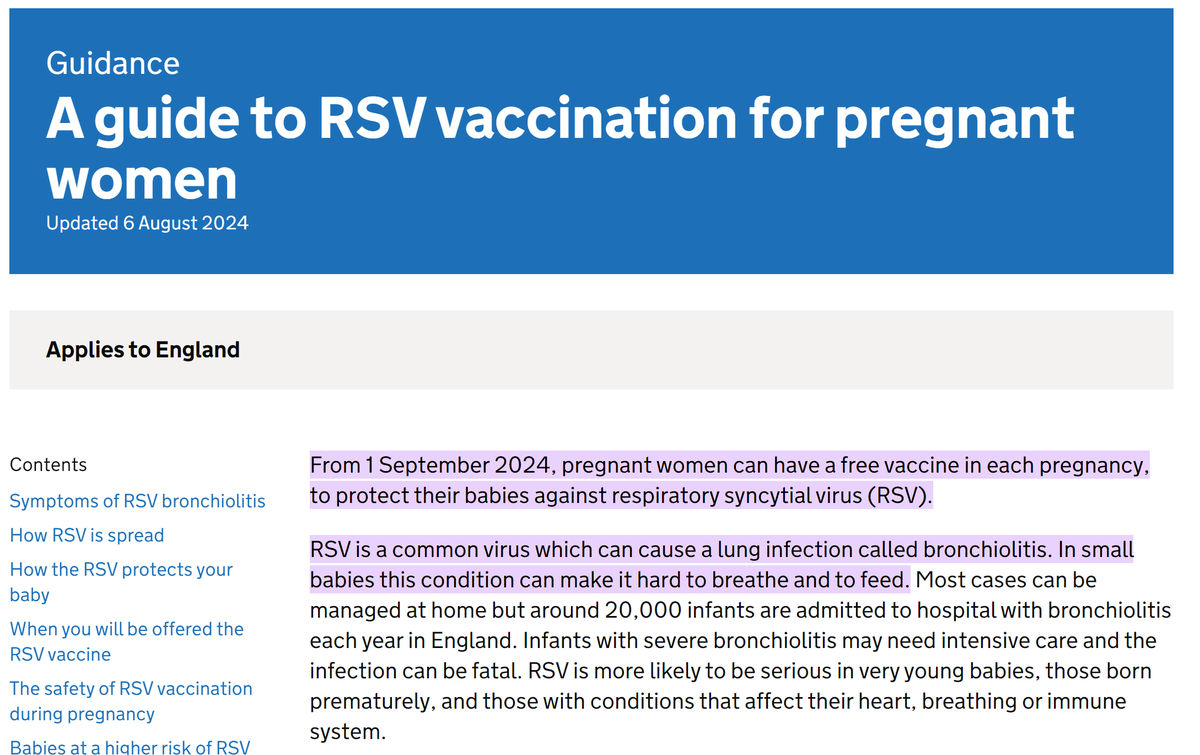
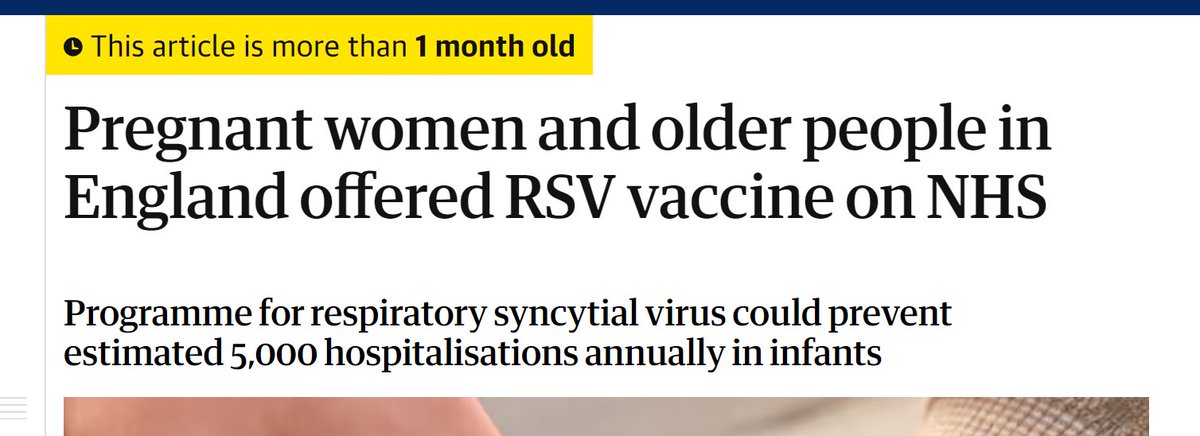
Problem is that uptake is quite low. About 40% for covid vaccine & 42% for flu vax in pregnancy.
Uptake of whooping cough vaccine was only 60% last winter - 15% points lower than in 2017. This year has seen more babies died of pertussis. 13/17

Uptake of whooping cough vaccine was only 60% last winter - 15% points lower than in 2017. This year has seen more babies died of pertussis. 13/17
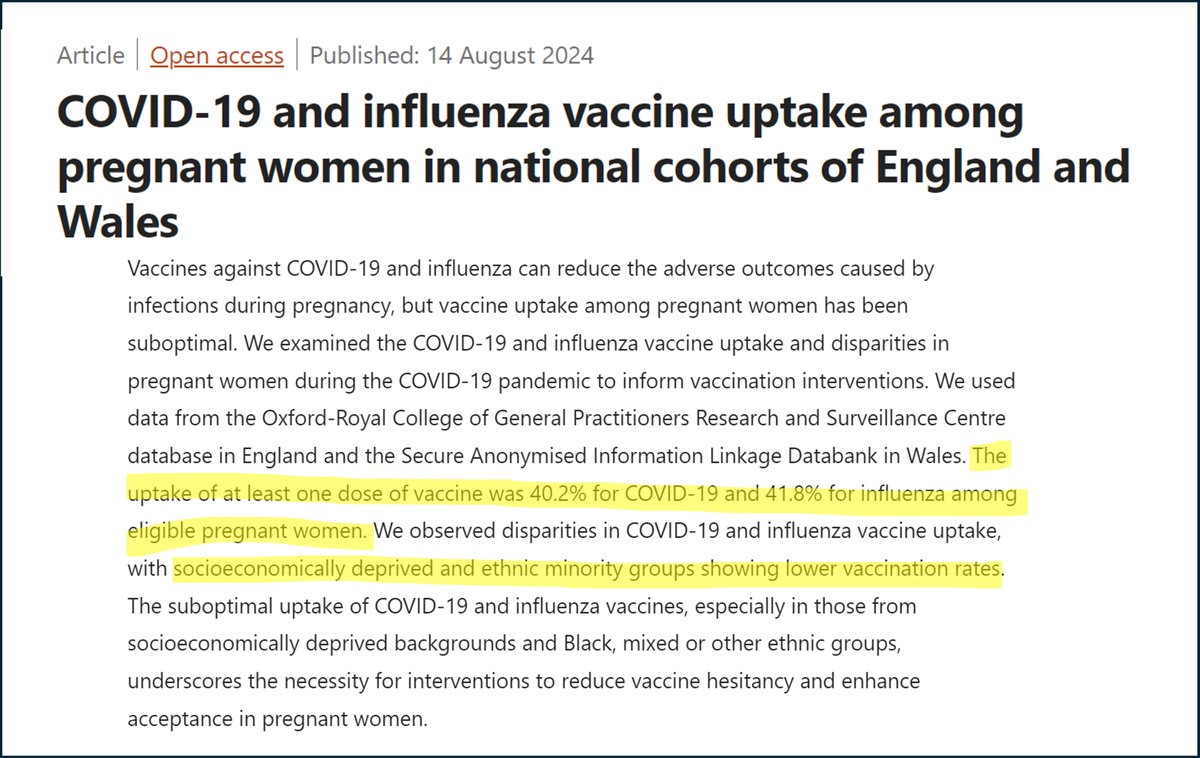
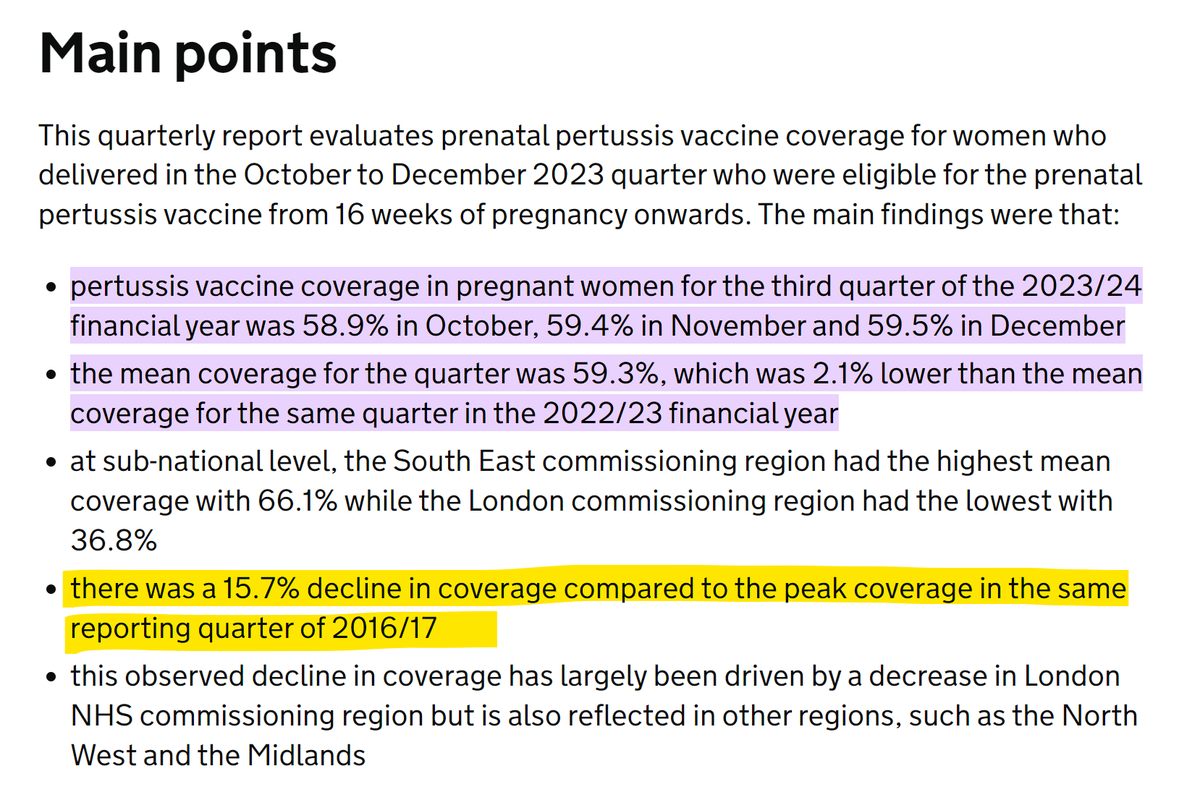
We also know that uptake of routine childhood vaccinations in childhood is declining in England, and we've seen not just whooping cough outbreaks this year, but several measles ones as well. 14/17 



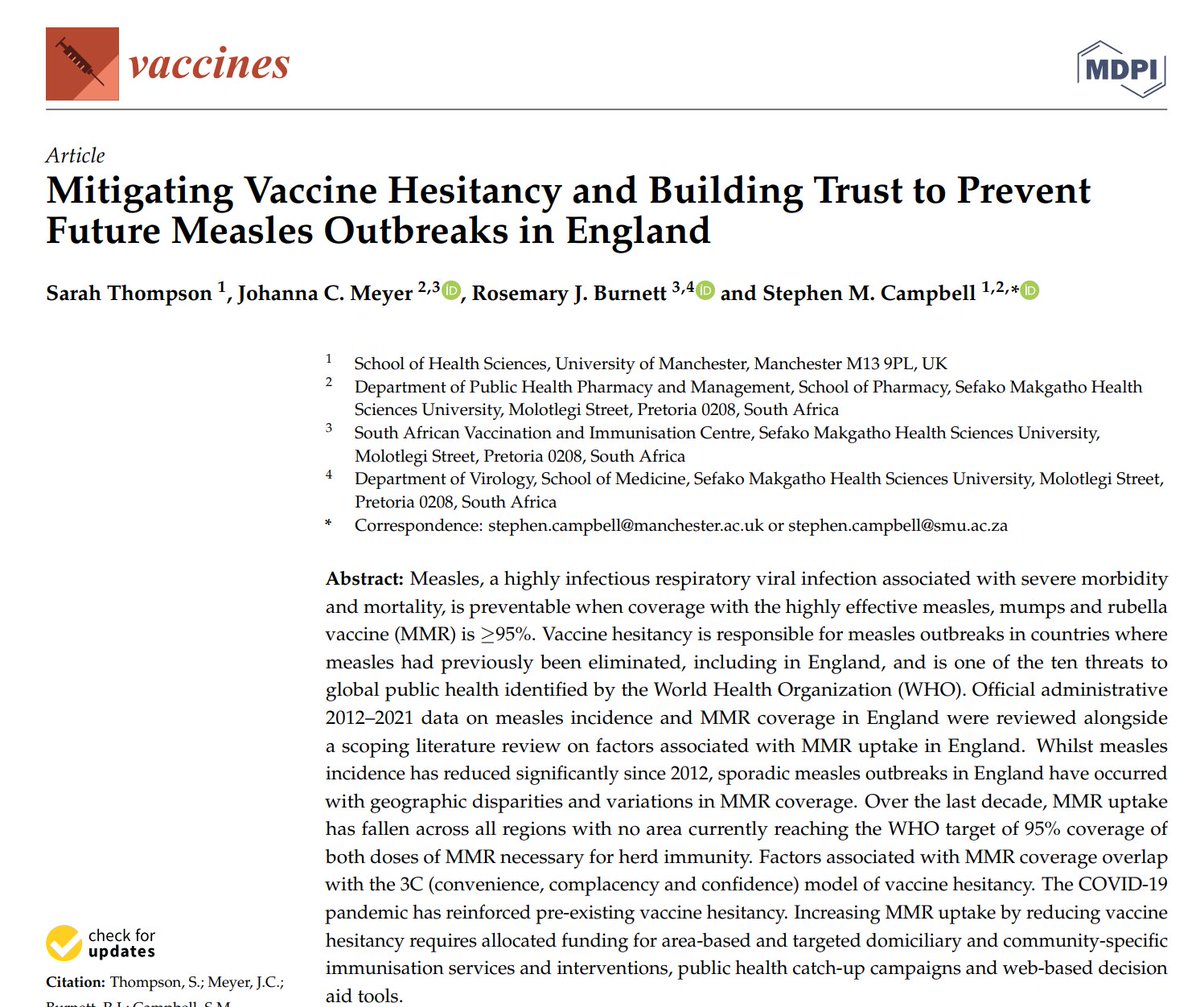
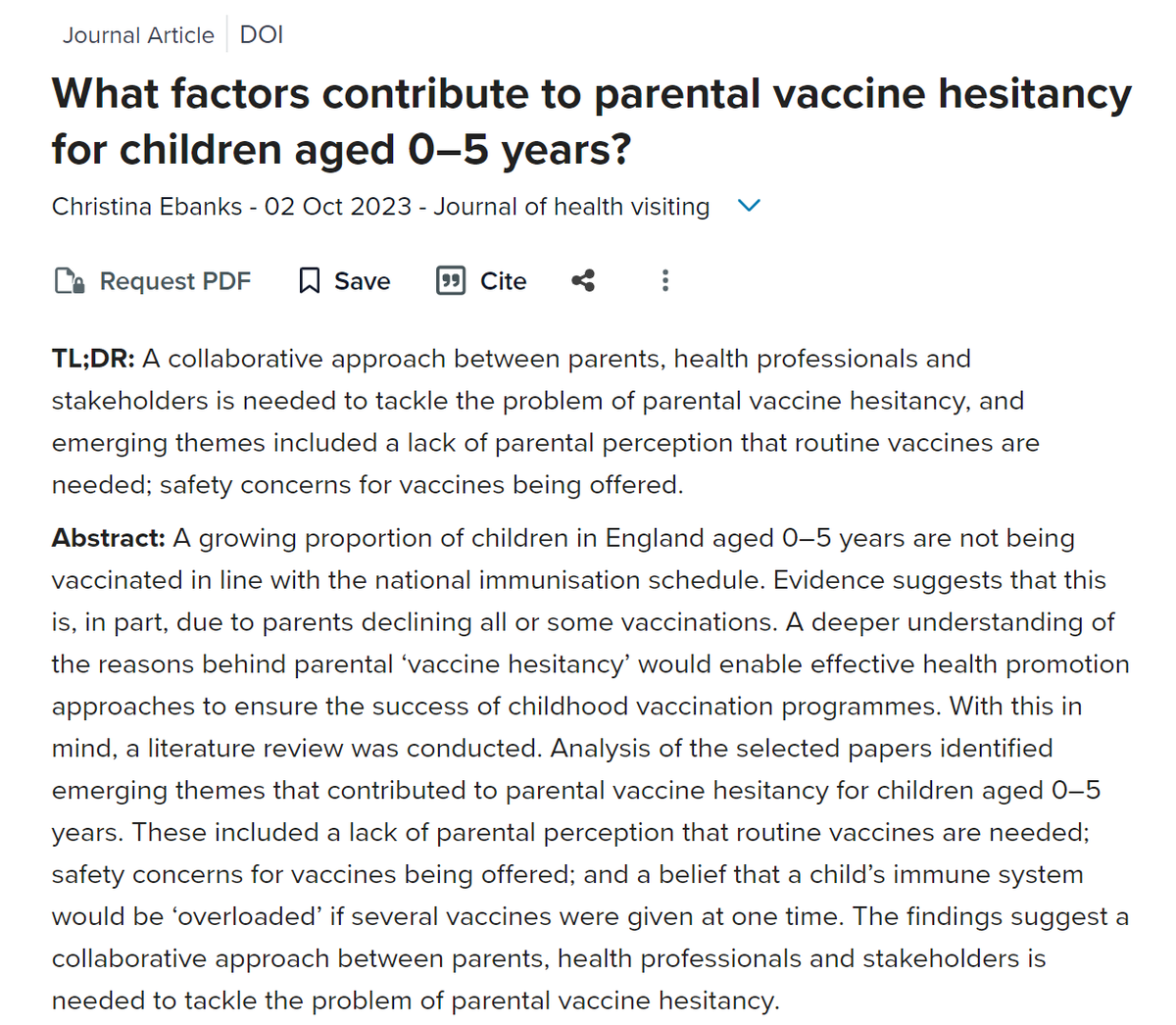
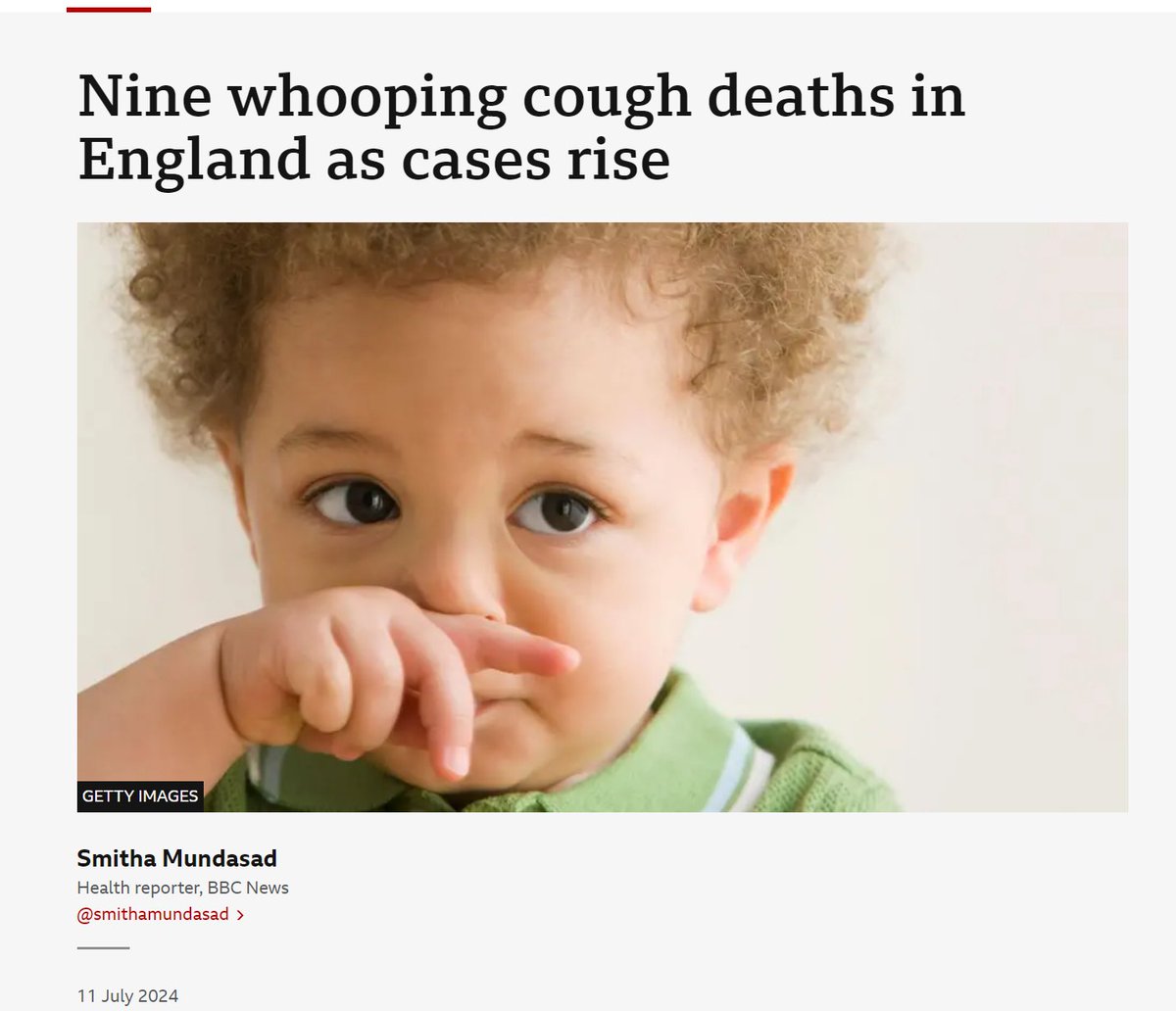
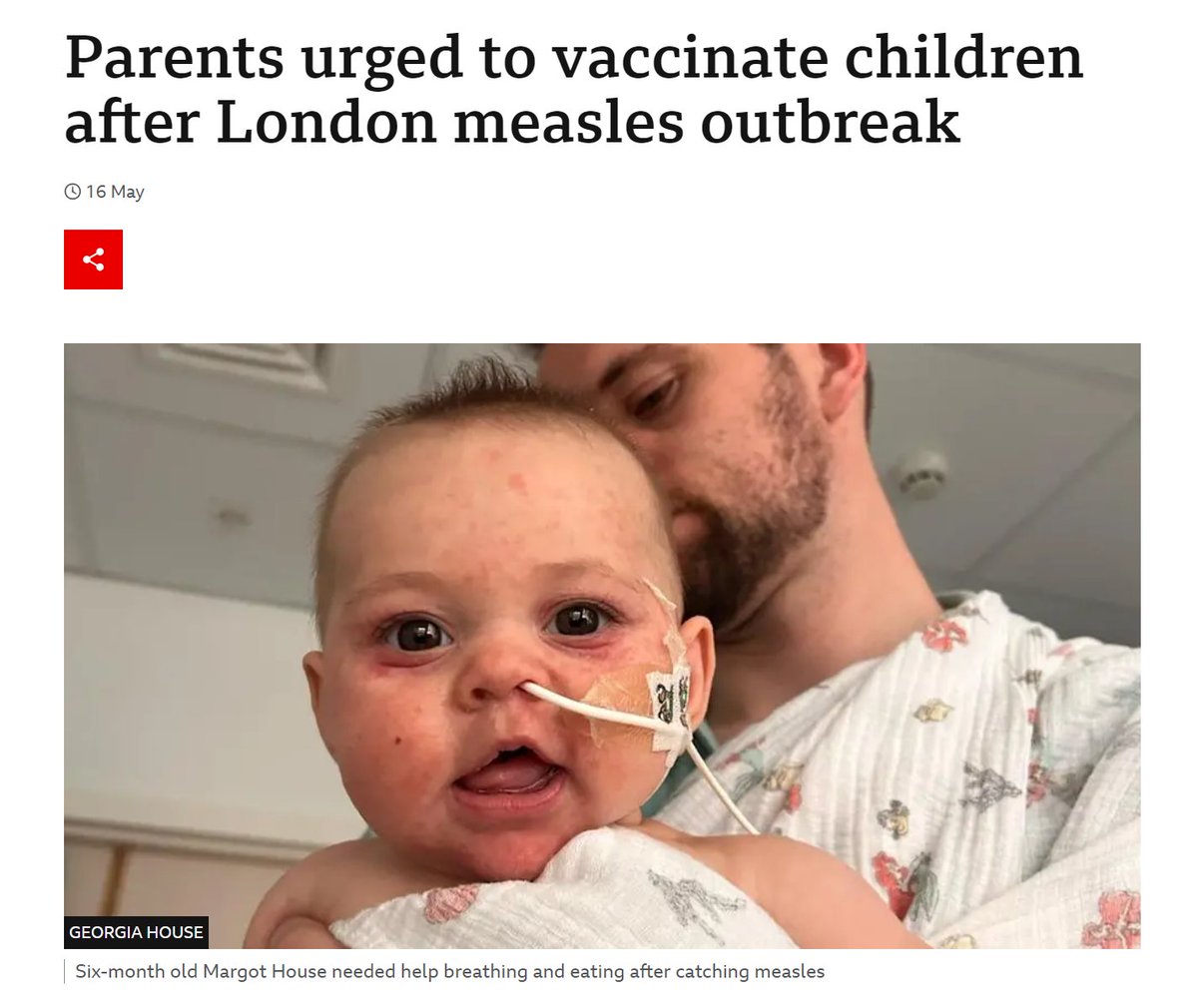
Given increasing vaccine hesitancy, perhaps the most important immediate effort is to tackle that across all existing childhood vaccines and uptake in pregnant women- esp whooping cough & RSV, two of the nastiest things for babies (worse than Covid).
15/17
15/17
We need to be vaccine champions! Babies' lives do depend on it!
Then, in the medium term, I believe we SHOULD offer infants & young children covid vax so that those not already infected can meet their first infection (e.g. on starting nursery) with some protection.
16/17
Then, in the medium term, I believe we SHOULD offer infants & young children covid vax so that those not already infected can meet their first infection (e.g. on starting nursery) with some protection.
16/17
In summary, our new paper shows clearly that for babies, the pandemic is as bad as it ever was.
There are things we can do to protect them, and we should.
Paper here:
17/17 jpeds.com/article/S0022-…
There are things we can do to protect them, and we should.
Paper here:
17/17 jpeds.com/article/S0022-…
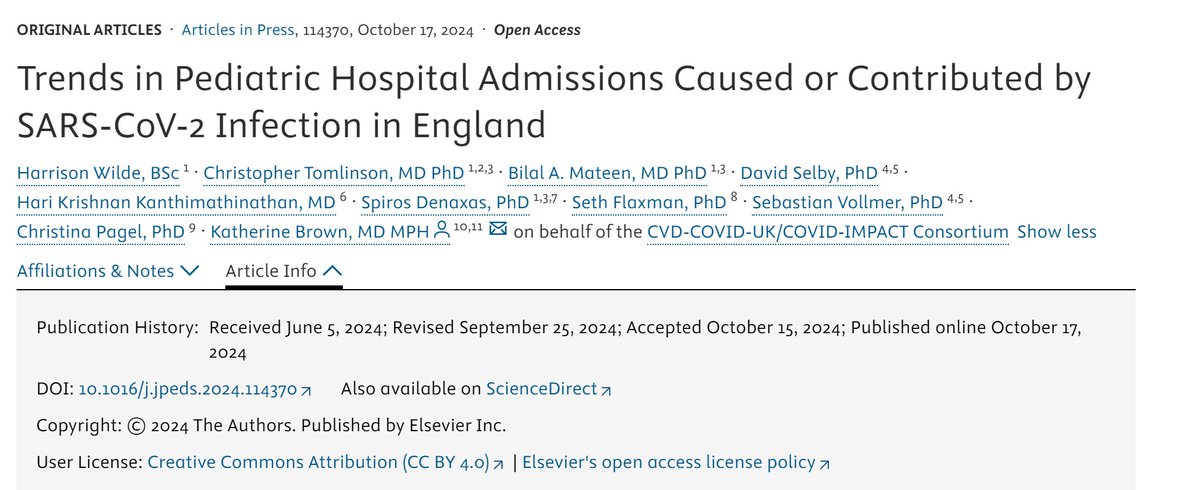
@threadreaderapp unroll
• • •
Missing some Tweet in this thread? You can try to
force a refresh























